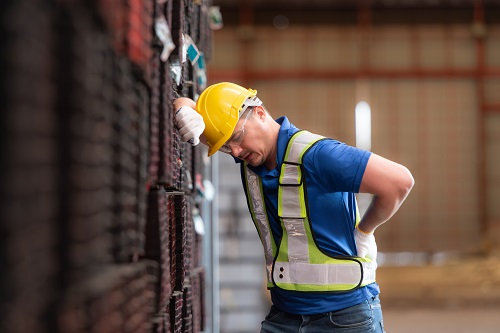Two Singapore Airlines cabin crew members and dozens of passengers remain in hospital in Bangkok after a flight from London Heathrow to Singapore hit severe turbulence over Myanmar on 20 May, resulting in one onboard fatality.
News
Singapore Airlines incident shows turbulence is ‘serious workplace safety issue’ that climate change could exacerbate
Sara Nelson, president of the US-based Association of Flight Attendants-CWA, said the incident served as a deadly reminder that “turbulence is a serious workplace safety issue for flight attendants”. Although rare, experts warn that incidents of severe turbulence could become more common because of climate change.
 Two crew members and 46 passengers remain in hospital and one passenger died after a Singapore Airlines Boeing 777-300ER encountered severe turbulence. Photograph: Singapore Airlines
Two crew members and 46 passengers remain in hospital and one passenger died after a Singapore Airlines Boeing 777-300ER encountered severe turbulence. Photograph: Singapore Airlines
“As our climate changes, severe and clear air turbulence instances are on the rise,” said Nelson.
“While details of Singapore Flight 321 are still developing, initial reports seem to indicate clear air turbulence, which is the most dangerous type of turbulence,” she added. “It cannot be seen and is virtually undetectable with current technology. One second, you’re cruising smoothly; the next, passengers, crew and unsecured carts or other items are being thrown around the cabin.”
Singapore Airlines flight SQ321 departed from London Heathrow on 20 May, bound for Singapore’s Changi Airport. Ten hours into the flight, the Boeing 777-300ER aircraft encountered what the airline’s chief executive, Goh Choong Phong, described as “sudden extreme turbulence”, causing it to drop about 6,000 feet (1,800 metres) in three minutes. The flight was then diverted to Bangkok.
As of 24 May, two of the 18 crew members and 44 of the 211 passengers who were onboard the flight were still in hospital in Bangkok receiving medical treatment, the airline confirmed. One passenger died of a suspected heart attack during the incident. Adinun Kittiratanapaiboo, director of Samitivej Srinakarin Hospital in Bangkok, said that 22 people had sustained spinal injuries and six were being treated for skull and brain injuries. He said it was too early to say whether any of the injuries would result in permanent paralysis.
Paul Williams, a professor of atmospheric science at the University of Reading who specialises in turbulence, said that while incidents as serious as Singapore Airlines Flight SQ321 remain very rare, there is “strong evidence” that turbulence is increasing because of climate change.
“We recently discovered that severe clear-air turbulence in the North Atlantic has increased by 55 per cent since 1979,” said Professor Williams. “Our latest future projections indicate a doubling or trebling of severe turbulence in the jet streams in the coming decades, if the climate continues to change as we expect.”
With this in mind, a source who works in the aviation industry has told Safety Management that a “change in mindset” is required when the ‘fasten seatbelt’ sign is switched off during flights.
“From my experience flying, I can audibly hear seatbelts being undone when the light goes off – almost as if some passengers are treating it as an instruction to do so,” said the source.
“Perhaps there are better ways in the use of signage to encourage passengers to keep their belts fastened whilst seated. For example, what if the sign remained on for the whole flight but switched from red illumination during take-off/descent and when passing through turbulence to green for other phases of flight/when clear of turbulence?”
Singapore Airlines said it is “fully co-operating” with the relevant authorities as they investigate the incident.
NEWS

Nation in declining health as UK marks pandemic anniversary
By Belinda Liversedge on 25 March 2025
Around one in seven (14 per cent) UK adults have experienced a long-term health condition because of the virus.

Review leader says “new era of workplace health” must solve long-term sick crisis
By Belinda Liversedge on 20 March 2025
Employers must “adapt with the times,” the leader of a major government review has urged, which confirms record numbers of people suffering from work-limiting health conditions and increasing joblessness due to mental ill health.

Intervention is key, says PwC as 4.4m more workers set to leave labour market
By Belinda Liversedge on 17 March 2025
Considering leaving work has "gone mainstream" says a new report, with one in 10 UK workers actively considering leaving work with mental health the main driver.



